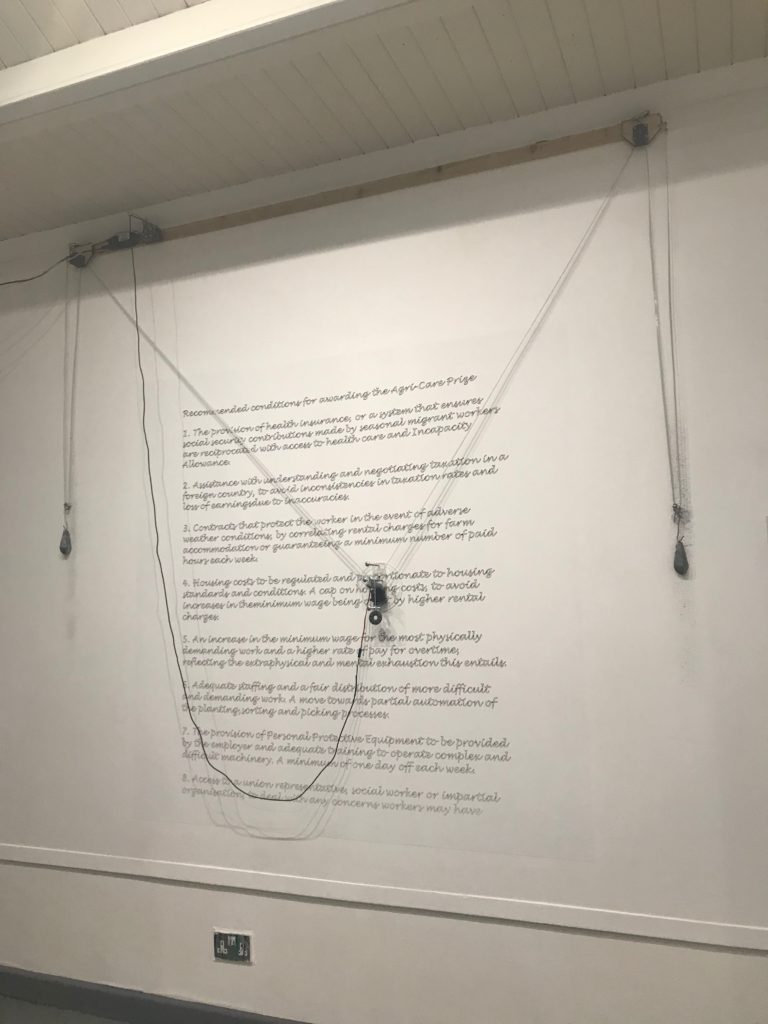The exhibition The Invisible Hands is devoted to the migrant workforce employed in Jersey farming industry, their lives, living and working conditions in Jersey. The labour of seasonal farm workers in Jersey has been an important part of the local economy for more than 150 years, yet their presence on the island is largely undocumented.
Invisible Hands offers another perspective on agricultural labour in Jersey from the workers themselves. It is a collaboration between migrant workers, the artist Alicia Rogalska and The Morning Boat.
‘I work as an artist to explore relationship and frameworks for others to respond to,’ Ms Rogalska explains. ‘I wanted the workers to have their own voice. It’s about acting as a support structure and providing the space for the workers to speak. They are often spoken about but rarely invited to speak themselves.’
The project includes a robot programmed to write a list of eight requests to improve working conditions for Polish migrants. Those eight points include reforms to the health and social security system that currently mean workers are not eligible for benefits until they have been in the Island for six months, and improvements in living conditions and wages for those undertaking the most difficult work. The robot demonstrates the increase in machinery and technology in the farming industry. This highlights that in the future, there may be no need for human labour.



